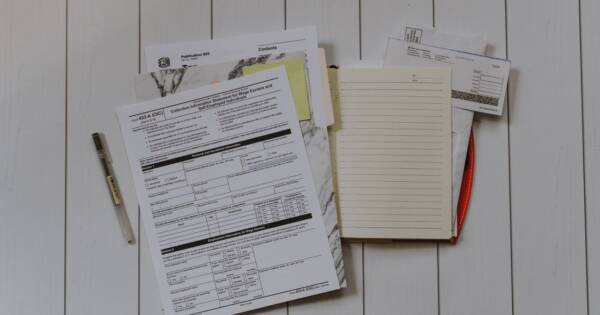Every year, billions of dollars in unclaimed money and property are turned over to federal and state governments. The good news is that searchable online resources make it simple to find and claim lost property. But where and how do you search for unclaimed assets without falling victim to dangerous scams?
What Is Unclaimed Property?
Unclaimed or abandoned property refers to money or other assets wherein the owner cannot be located. These assets may be labeled unclaimed property after a dormancy period during which there has been no contact or activity between the owner of the asset and the holder of the asset (generally a company or financial institution). Once the property becomes legally unclaimed, it must be turned over to the state.
Types of Unclaimed Property
Unclaimed property may include tangible items such as the contents of safe deposit boxes or intangible items such as uncashed paychecks. While this is by no means a complete list, the following items may constitute unclaimed property:
- Annuities
- Stocks
- Bank accounts
- Certificates of Deposit (CDs)
- Customer overpayments
- Insurance payments
- Uncashed payroll checks
- Uncashed dividends
- Traveler’s checks
- Trust distributions
- Consumer refunds
- Security deposits for utilities or housing
- Unredeemed money orders
- Mineral royalty payments
Start With Your State
When searching for unclaimed assets, your state government is a good place to start. All U.S. states, plus the District of Columbia, have programs that reunite citizens with state-held assets. That can include bank accounts, trust funds, uncashed checks, utility deposits, insurance policies, stocks, bonds, earned wages, escrow accounts and safe deposit box contents.
The National Association of Unclaimed Property Administrators (NAUPA) provides links to the official state treasurer unclaimed money program in each state. Consumers can also find links to Puerto Rico, the U.S. Virgin Islands and several Canadian provinces here as well.
Multistate Searches
For individuals who’ve resided in more than one state, a multistate property locator such as MissingMoney.com may be a more efficient search tool. Managed by NAUPA, the search returns results from participating states. If assets are found, searchers will be directed to the holding state’s official unclaimed property page.
Federal Searches
Federal searches for unclaimed property may involve several websites, depending on the asset type. Agencies such as the FDIC and the IRS handle area-specific unclaimed property claims.
Federal searches for unclaimed assets can turn up unpaid wages, federal tax returns, liquidated credit union assets, veterans’ benefits, FHA refunds and other federally regulated properties as outlined below.
Employment Wages
The U.S. Department of Labor’s Wage and Hour Division enforces many of the country’s labor laws, sometimes resulting in the recovery of unpaid wages. By executing a Workers Owed Wages search, you can find money from employers in violation of federal regulations.
Banks and Credit Union Funds
Through the Federal Deposit Insurance Corporation (FDIC), consumers can search for unclaimed funds resulting from the closure of an FDIC-insured institution.
Consumers can also search the National Credit Union Administration’s website to find unclaimed funds left when a federally insured credit union was liquidated. This search includes uncashed checks or shares of the distribution of the liquidated credit union’s funds if there was a surplus.
Pension Benefits
The Pension Benefit Guaranty Corp’s website includes a searchable database that lets individuals find unclaimed pension benefits resulting from a closed plan or a plan that’s been taken over by the agency. Surviving spouses may also track down owed benefits through this site.
Housing-Related Assets
The U.S. Department of Housing and Urban Development’s site lets homeowners or former homeowners with HUD- or FHA-insured mortgages search for earnings shares and insurance premium refunds.
Investment Earnings
If you think you may have mature savings bonds, registered Treasury bonds or registered Treasury notes, the U.S. Federal Investments website can tell you. Its searchable database can also help U.S. citizens who haven’t received their anticipated payments from Legacy Treasury Direct or interest due from Series H and HH savings bonds.
Investors affected by SEC’s enforcement actions can locate unclaimed funds using the Harmed Investors Search. You’ll need to provide either the case name or the party involved in the action to search the database.
Veterans’ Benefits
Veterans or their surviving beneficiaries can locate unclaimed insurance funds through the U.S. Department of Veterans Administration website. Applicable VA insurance programs include:
- National Service Life Insurance
- Service-Disabled Life Insurance
- United States Government Life
- Veterans Reopened Insurance
- Veterans Special Life Insurance
This search doesn’t include SGLI or VGLI policies.
Federal Tax Refunds
For missing tax refunds, head to the IRS.gov unclaimed money search: Where’s My Refund? Be prepared to provide your ITIN or Social Security number, the filing status of your taxes and the exact amount of your refund. U.S. citizens can locate a missing refund for taxes that have been filed in the current filing year.
Third-Party Finder Organizations: Legitimate or Not
Some companies advertise help with finding unclaimed property for a fee, which is typically a percentage of the total amount recovered. States may regulate these third-party finders, requiring a license or registration, and some states cap the fee at 10%.
Before you sign a contract with a third-party finder organization, familiarize yourself with your state’s unclaimed property finder laws and check the legitimacy of the organization. Most states provide this information on their official website for unclaimed property.
Avoiding Scams
Whether or not you’re actively searching for unclaimed money, scammers are out there preying on individuals through emails, phone calls and official-looking letters. These scams can lead to lost money and identity theft.
Thankfully, there are simple ways to avoid becoming the victim of a scam:
- Always use official sources to search for unclaimed money.
- Unless you hire a state-regulated third-party finder organization, searching for unclaimed money is free.
- Remember that U.S. government agencies do not contact citizens about unclaimed money.
- Don’t give out personal information to an unverified party and never give out sensitive information over the phone.
- Research or report scams at the Better Business Bureau’s Scam Tracker.
Final Words on Unclaimed Property
If your U.S. unclaimed money search turns up assets, follow the website’s instructions for claiming your funds. For individuals with international interests, the NAUPA website includes resources for researching unclaimed property in Australia, Canada, France, New Zealand and Switzerland.






